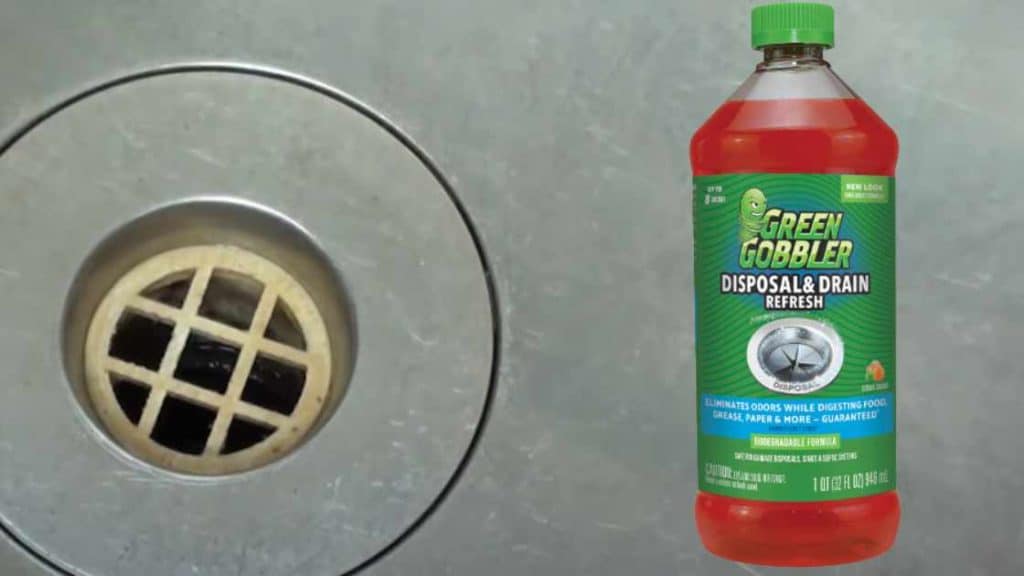Enzyme-based and dish soap drain cleaners can be safe for garbage disposal. It’s crucial to avoid caustic chemicals that can damage the disposal system.
Ensuring your garbage disposal is free of clogs without causing damage or erosion is essential to maintaining a well-functioning kitchen. Opting for a drain cleaner that is compatible with garbage disposals is key; many homeowners face the dilemma of choosing the right product.
When it comes to maintaining your garbage disposal, it’s crucial to opt for a solution that ensures both effectiveness and safety. Consider a drain cleaner specifically designed for use in garbage disposals, with a formula enriched with enzymes or natural ingredients.
This type of cleaner excels in breaking down organic matter, ensuring optimal disposal performance without causing any harm to your plumbing or the mechanics of the disposal unit. Steering clear of chemical cleaners is advisable, as their harsh nature can lead to corrosion and potential long-term issues.
For a clean and efficient kitchen environment, make it a point to conduct regular maintenance, paired with the use of a drain cleaner safe for garbage disposal. This dual approach not only keeps your disposal running smoothly but also helps eliminate unpleasant odors, contributing to an overall healthier kitchen atmosphere.
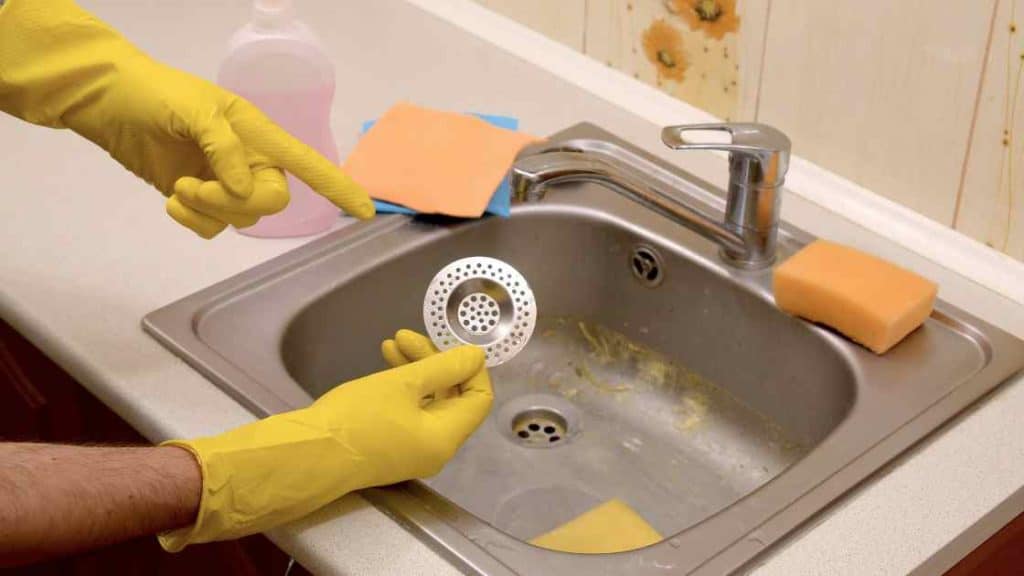
Introduction To Garbage Disposal Maintenance
Maintaining your garbage disposal is like feeding a pet. It can be easy and safe if you know what’s good for it. A clean and happy disposal keeps your kitchen fresh and your sink clear. Let’s dive into how to take care of it right.
Your Garbage Disposal System
Your garbage disposal is a kitchen hero. It chews up food scraps and keeps pipes from clogging. Think of it as a blender for your sink. It has blades and a motor that needs your care. Let’s learn to keep it in top shape.
The Importance Of Choosing The Right Drain Cleaner
Choosing the right cleaner is key. Not all cleaners are friendly to your disposal. Some can be mean and hurt it. We want a clean drain without any tears. Pick a cleaner that smiles at your disposal and gives it a gentle wash.
| Do | Don’t |
| Use cold water when running disposal | Put oil or grease down the disposal |
| Cut large items into smaller pieces | Grind up hard materials like bones |
| Run disposal regularly to prevent rust | Use harsh chemicals that can damage pipes |
Remember, taking care of your garbage disposal is not tough. With the right cleaner and some smart tips, you can keep it running smoothly. Treat your disposal well, and it will treat you well in return.
Chemical Drain Cleaners: Benefits And Risks
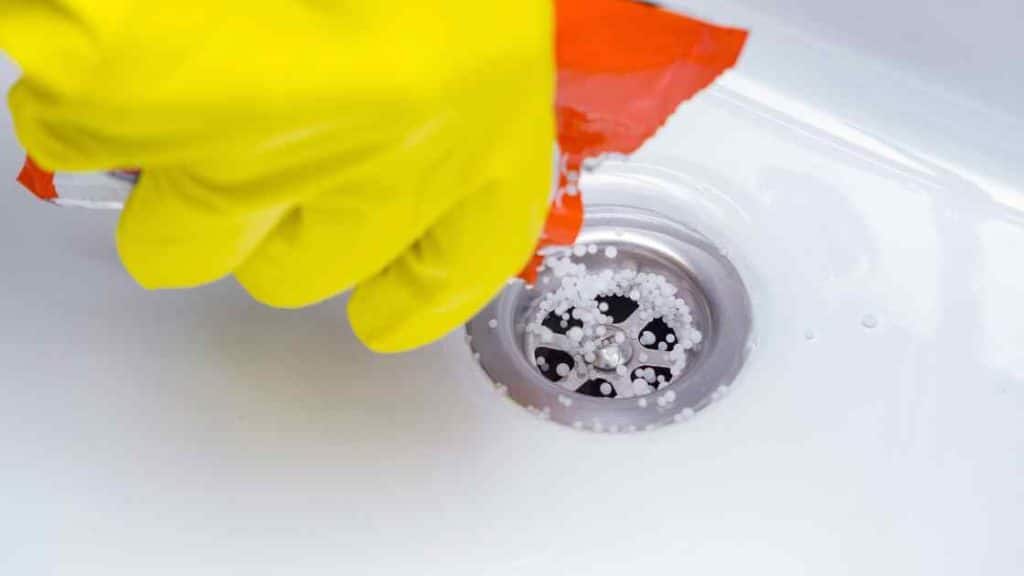
Solving tough clogs in your kitchen sink can be a daunting task. Chemical drain cleaners offer a quick fix, but it’s crucial to understand how they work and the possible risks they pose to your garbage disposal.
How Chemical Drain Cleaners Work
These powerful solutions dissolve food scraps and buildup with a simple pour down the sink. When you use them, a chemical reaction occurs. This reaction generates heat and breaks down the substances causing the blockage.
Potential Hazards Of Chemical Cleaners To Garbage Disposals
- Corrosive Ingredients: Chemical cleaners contain harsh components that can damage your disposal’s inner workings.
- Plastic and Rubber: Parts within your disposal may melt or warp due to the high heat produced.
- Long-Term Damage: Frequent use can lead to premature disposal failure, increasing repair costs over time.
Eco-friendly Alternatives For Drain Cleaning
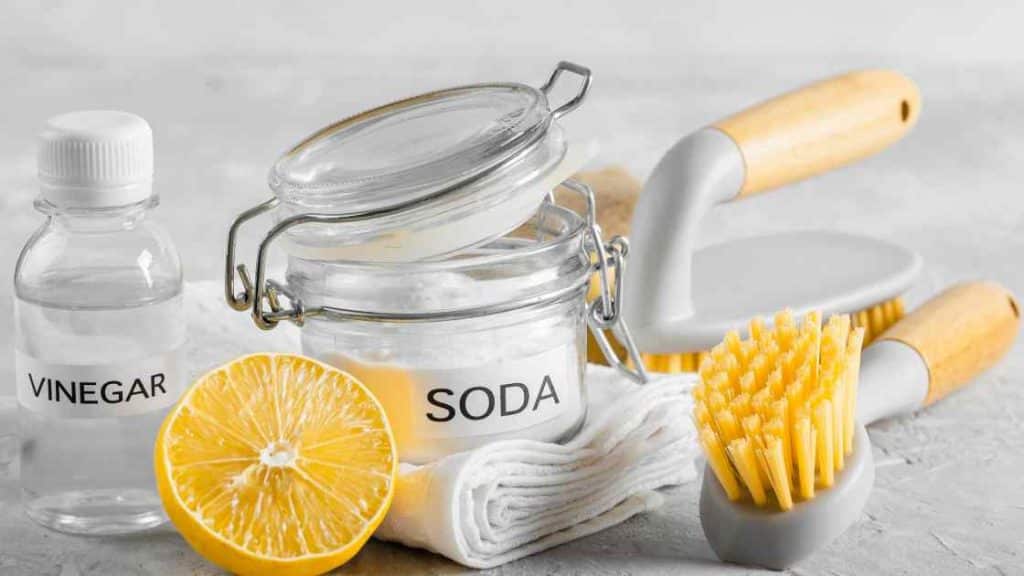
Kitchens serve as the heart of our homes, and their drains work hard every day. With the right eco-friendly cleaners, ensuring a clean, safe environment is effortless. Let’s Investigate natural solutions that keep your garbage disposal and the planet healthy.
Natural Ingredients Safe For Garbage Disposals
Safe and natural cleaning agents can protect your garbage disposal and the environment. Simple pantry items, like baking soda and vinegar, work wonders. They cause no harm to the pipes or natural ecosystems.
- Baking soda: Absorbs odors and scrubs away grime
- Vinegar: Breaks down food particles
- Lemon peels: Freshens and cleans
- Hot water: Flushes out residue
The Effectiveness Of Green Cleaners
Green cleaners match their chemical counterparts in strength and efficiency. They maintain free-flowing drains without harsh chemicals. These cleaning solutions support a healthier home and environment.
- Enzyme-based cleaners: Natural dissolvers for organic matter
- Salt: A mild abrasive that helps clear drains
Prime your kitchen for sustainable living with these eco-friendly cleaning alternatives.
Mechanical Methods For Garbage Disposal Cleaning
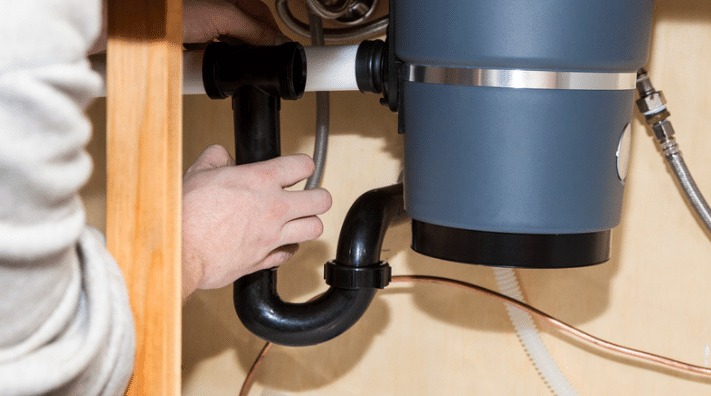
Cleaning a garbage disposal is crucial for a healthy kitchen. Sometimes, the solution is not chemicals but mechanical methods. These methods clear clogs without damaging your disposal. Let’s Investigate how to use these tools effectively.
Plunging And Snaking Techniques
Two popular mechanical methods are plunging and snaking. A plunger can dislodge clogs by creating pressure. For deeper clogs, a plumber’s snake reaches into the pipes. Below is a simple guide to use both tools:
- Fill the sink partly with water.
- Use the plunger over the disposal drain.
- Plunge vigorously.
- If plunging fails, insert the snake into the drain.
- Turn the snake handle clockwise.
- When you hit resistance, pull and push the snake.
- Remove the snake and run water to clear debris.
Pros And Cons Of Mechanical Drain Cleaning Tools
Mechanical tools have benefits and drawbacks. Here, we outline some key points:
| Pros | Cons |
|---|---|
| No harsh chemicals | Physical effort required |
| Immediate results | Potential for pipe damage |
| Reuse many times | Learning curve |
The Role Of Enzymatic Drain Cleaners
Keeping drains free of clogs is a task that often comes with hesitation. Enzymatic drain cleaners offer an eco-friendly solution to maintaining your garbage disposal. These products harness natural processes to decompose organic matter without harming your pipes or the environment.
How Enzyme-based Cleaners Work
Enzyme-based cleaners use biological compounds to break down clog-causing substances. The enzymes target food, fats, oils, and grease, turning them into water and harmless gases. As a result, they work effectively within your garbage disposal system, preventing blockages and eliminating odors.
- Bind to waste: Enzymes attach to clog substances.
- Break down: They break complex molecules into smaller, soluble ones.
- Disperse: The resulting smaller molecules are washed away.
Comparing Enzymatic Solutions With Chemical Cleaners
Enzymatic solutions differ from chemical cleaners in several key ways. Unlike harsh chemicals, enzymatic cleaners work overtime to maintain cleanliness and pipe health.
| Aspect | Enzymatic Cleaners | Chemical Cleaners |
|---|---|---|
| Composition | Natural enzymes, bacteria | Harsh chemicals |
| Effectiveness | Long-term maintenance | Immediate results |
| Safety | Gentle on pipes and systems | Can corrode or damage |
| Impact | Environmentally friendly | Potential environmental hazard |
Enzymatic cleaners present a gentle, gradual solution that helps preserve plumbing systems while supporting a healthy environment.
Diy Drain Cleaning Recipes Safe For Disposals
Keeping kitchen drains clean prevents odors and clogs. A safe, easy method is using DIY recipes. These recipes protect both your disposal and pipes.
They use household items, avoiding harsh chemicals. This guide makes DIY drain maintenance simple and safe.
Homemade Cleaner Combinations
Baking soda and vinegar create a fizzing action. It helps break down food particles. Lemon juice adds a fresh scent. Here’s a safe combo:
- 1/2 cup baking soda
- 1 cup vinegar
- Hot water
- Lemon peels (optional)
Another mix uses ice cubes and salt. They sharpen disposal blades and scrub the drain. Cups of ice and a handful of salt do the trick.
Step-by-step Guide To Diy Drain Maintenance
- Turn off disposal. Ensure safety first.
- For baking soda mix, pour baking soda into the disposal.
- Add vinegar. Allow the mixture to fizz.
- Wait 5 minutes. Then rinse with hot water.
- If using lemon, add peels and run the disposal.
- For ice and salt, fill the disposal with ice.
- Sprinkle a handful of salt over ice.
- Turn on the disposal with cold water running.
- Let it run until the ice is cleared.
| Ingredient | Purpose |
|---|---|
| Baking Soda | Cleansing agent |
| Vinegar | Disinfectant |
| Hot Water | Rinse aid |
| Lemon Peels | Deodorizer |
| Ice Cubes | Blade sharpener |
| Salt | Abrasive scrubber |
Professional Drain Cleaning Services
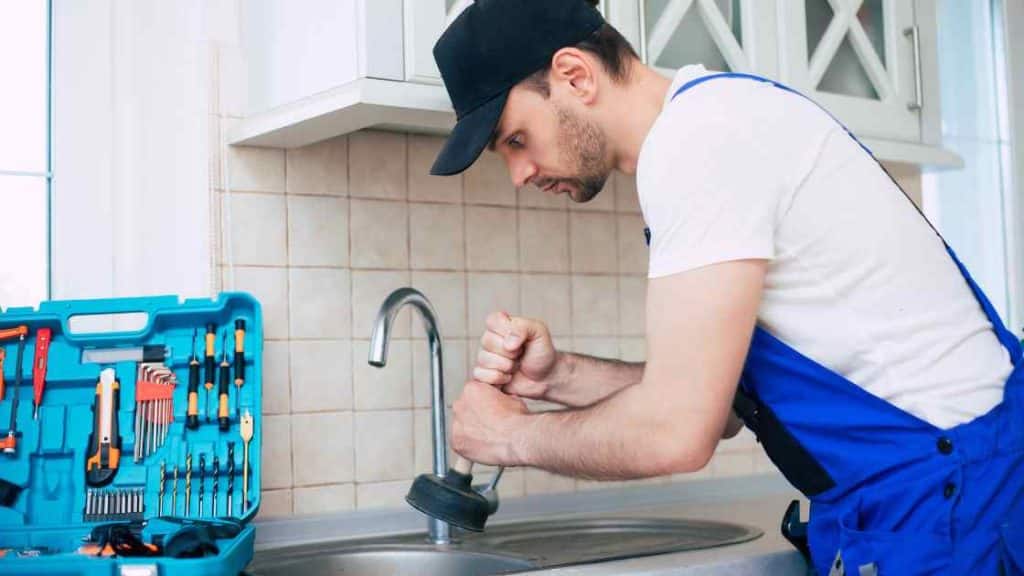
Over time, kitchen sinks and garbage disposals accumulate grime and debris. Sometimes, a simple DIY drain cleaner isn’t enough. That’s where professional drain cleaning services come into play.
Regular maintenance by experts can keep your garbage disposal in top shape, preventing clogs and ensuring efficiency. Let’s Investigate when it’s time to call a pro and how to choose the right service provider for your needs.
When To Call A Professional
You might need expert help if you notice:
- Slow Draining: Water backs up due to blockages.
- Bad Odors: Persistent smells that refuse to fade.
- Strange Noises: Gurgling sounds indicating trapped air.
Professional intervention can quickly resolve these issues, preventing further damage to your system.
Selecting A Service Provider Knowledgeable In Garbage Disposal
Choose wisely for the best results with your disposal unit:
| Tip | Reason |
|---|---|
| Check credentials | Ensures proper training and experience. |
| Read reviews | Gauges past customer satisfaction. |
| Ask about disposal experience | Confirms expertise with your unit type. |
Finding a provider with experience in garbage disposal is crucial for specialized cleaning without causing harm to your unit.
Preventive Measures And Garbage Disposal Care
Keeping a garbage disposal in top shape is essential. Proper care and maintenance can prevent costly repairs. Here’s how you can keep your disposal running smoothly and extend its lifespan.
Daily Habits To Avoid Clogs
Good daily practices can keep your garbage disposal clog-free. Here are simple tips:
- Run cold water during and after disposal use.
- Avoid disposing of fibrous or hard food scraps.
- Use a disposal cleaner designed for safety with disposals weekly.
Regular Maintenance Tips To Prolong Lifespan
Regular upkeep can vastly increase the life of your disposal. Follow these maintenance tips:
| Frequency | Maintenance Tip |
|---|---|
| Daily | Use cold water and run the disposal regularly. |
| Weekly | Clean with safe disposal cleaner. |
| Monthly | Grind ice cubes to sharpen blades. |
| Bi-Annually | Inspect for leaks and wear. |
Remember to shy away from harsh chemicals. They can damage your disposal and pipes. Instead, opt for natural solutions like baking soda and vinegar to freshen and clean.
Common Mistakes To Avoid In Drain Cleaning
Keeping drains clean helps avoid clogs and extends the life of your garbage disposal. But, not all methods are safe or effective. Know the common mistakes to steer clear of.
Misuse Of Chemical Cleaners
Chemical drain cleaners can seem like a quick fix. Yet, they may harm your garbage disposal. Here’s why:
- Corrosion: Harsh chemicals corrode pipes and the disposal’s interior.
- Damage to seals: They can degrade the disposal’s seals, leading to leaks.
- Safety risks: Chemicals pose health risks, especially if not used as directed.
Foreign Objects And Non-food Items To Keep Out
Your disposal is for food waste. Non-food items can cause severe damage. Keep these out:
| Foreign Objects | Reason to Avoid |
|---|---|
| Utensils | Jamming and damaging blades |
| Plastics | Not designed to break down in disposal |
| Fibrous materials | Entangling and blocking the motor |
Best Practices For Using Drain Cleaners
Ensuring the longevity and proper functioning of your garbage disposal requires careful consideration when choosing and using drain cleaners.
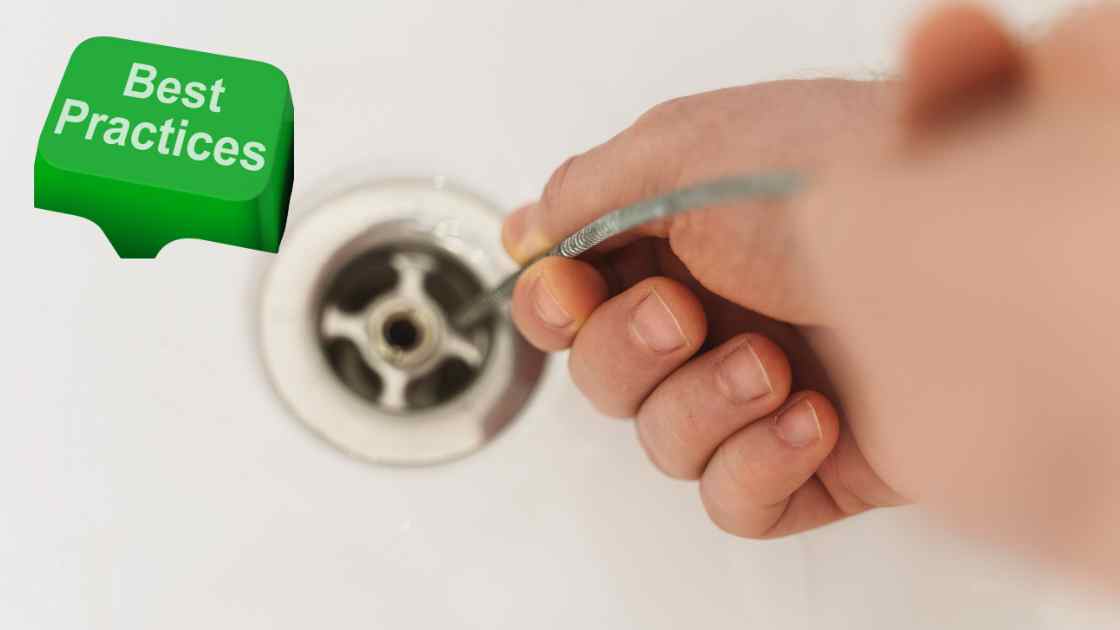
It’s crucial to use products that are not only effective at clearing clogs but also safe for the internal components of your disposal system. Embracing best practices for using drain cleaners can prevent damage and keep your sink running smoothly.
Summary Of Safe Drain Cleaning Methods
Begin with natural solutions such as baking soda and vinegar for a safe yet effective approach. To apply these methods:
- First, pour hot water down the drain.
- Follow with half a cup of baking soda and let it sit.
- After a few minutes, add a cup of vinegar and cover the drain.
- Finally, flush with more hot water after the fizzing stops.
Mechanical methods like a plunger or a drain snake are great options too. These tools physically dislodge clogs without the need for harsh chemicals. For tougher blockages,
- Position the plunger over the drain.
- Use a steady pumping motion to clear the clog.
- If unsuccessful, insert the drain snake and turn it to break up the blockage.
Final Recommendations For Protecting Your Garbage Disposal
Always read and follow the manufacturer’s instructions when using commercial cleaners. Opt for cleaners specifically labeled as safe for garbage disposal. Certain enzymes and bacteria-based products are both safe and effective.
For ongoing maintenance:
- Run cold water through your disposal for at least 15 seconds post-use.
- Clean regularly with a safe, gentle brush or cloth.
- Avoid disposing of hard, fibrous, or oily waste, which can damage blades and cause clogs.
By adhering to these recommendations, you will extend the life of your garbage disposal and ensure it remains in peak condition.
Frequently Asked Questions Of Drain Cleaner Safe For Garbage Disposal
Can You Use Drain Cleaner With A Garbage Disposal?
Using drain cleaners specifically formulated for garbage disposal is essential. Traditional chemical cleaners can damage the disposal system. Products labeled “garbage disposal safe” are safer choices.
What Makes A Drain Cleaner Safe For Disposals?
Drain cleaners safe for garbage disposals avoid harsh chemicals that can corrode disposal blades and pipes. They often use enzyme or biodegradable formulations to prevent damage while clearing clogs effectively.
How Often Should You Clean Your Garbage Disposal?
Clean your garbage disposal every one to two weeks. Regular cleaning prevents clogs and maintains freshness. Avoid waiting until odors or slow drainage occur to initiate cleaning.
Are Natural Drain Cleaners Effective For Disposals?
Yes, natural drain cleaners like baking soda and vinegar can be effective. They are environmentally friendly and gentle on the disposal’s components. Regular use helps maintain clear and odorless drains.
What type of drain cleaner is safe for garbage disposal?
A mild, enzymatic drain cleaner is safe for garbage disposals as it helps break down organic materials without causing damage to the disposal unit. Avoid using harsh chemical-based cleaners, as they may corrode the disposal components over time.
Can I use drain cleaner in sink disposal?
Using drain cleaner in a sink disposal is not recommended, as it can damage the disposal’s components and may react with other substances present in the pipes. It’s advisable to use alternative methods, such as a combination of baking soda and vinegar, to maintain the functionality of your sink disposal.
Conclusion
Choosing the right drain cleaner for your garbage disposal ensures longevity and functionality. Opt for enzyme-based cleaners to maintain your plumbing system. Remember, regular maintenance is key to avoiding costly repairs. Keep your kitchen sink fresh and your disposal in top shape with a safe, effective cleaner. Experience a disposal process without any worries.

